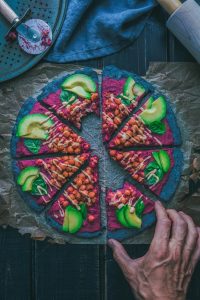Becoming vegan at an older age has both risks and benefits. The diet puts many at risk for nutrient deficiency but can be a good way to boost your health. A vegan diet allows “no seafood, dairy, or other animal products,” which is where we receive many of our necessary daily vitamins. However, the foods one can eat on a vegan diet offer plenty of health benefits and could provide enough for people of all ages.
Becoming Vegan – Benefits
Meat-containing diets offer some nutrients that can’t be substituted. However, vegan diets lower the risk of heart disease, which is more worrisome at an older age. Some studies have found that meatless diets lower risk for diabetes, obesity, and even cancer. On a related note, vegans were found to have a higher risk of hemorrhagic stroke, compared to meat-eaters. This alone makes it unclear if vegan is better than other diets. Vegetarian is a less restrictive diet with similar health benefits, and lower health risks. However, not many studies separate the two so we don’t have enough evidence to compare.
Age-Related Vegan Risks
Our bodies naturally deteriorate with age, so the nutrients lacking in a vegan diet become very noticeable later in life. A vegan diet is sorely lacking in the following nutrients:
Calcium. Something that is very important for older bones. Also, something very important in younger years as calcium helps in the aging of bones.
Protein. Necessary for building strong muscles, bones, and skin. As we age it’s harder to maintain muscle and bone mass. Without protein, it also becomes much harder for wounds to heal.
Vitamin B12. Found only in animal-based foods, we need this vitamin for our DNA, as well as cell growth and nervous system, among others.
Besides these factors, it’s much harder to take in the proper amount of calories needed each day. Without the right calorie count, you will become less productive and your body can become malnourished.
 Safe Practices
Safe Practices
Becoming vegan at an older age is still possible, just try avoiding deficiencies with these suggestions:
Avoid calcium deficiency. Food such as almonds, spinach, and oranges are rich in calcium. These are also foods that should be included in your regular diet regardless if you’re vegan or not. These are just some of the examples of simple foods you can include every day to keep your calcium levels up. Ideally, consume 1,000 – 1,200 mg of calcium each day.
Maintain protein intake. Soy products, legumes, and nuts are all good sources of protein. These would need to be included in your daily diet in order to get the proper amounts. You will need approximately 7 grams of protein daily for every 20 pounds of body weight.
Avoid vitamin B12 deficiency. Both almond and soy milk are rich in B12, and it is suggested you take a B12 vitamin on a vegan diet. You should be regularly checked by a doctor to make sure your B12 levels are staying regular.
Need Help?
Before you ever change your diet, you should always consult your doctor. If you need help getting a great insurance plan to see your doctor, GIVE US A CALL! 1-888-446-9157 or click here to get an INSTANT QUOTE.

